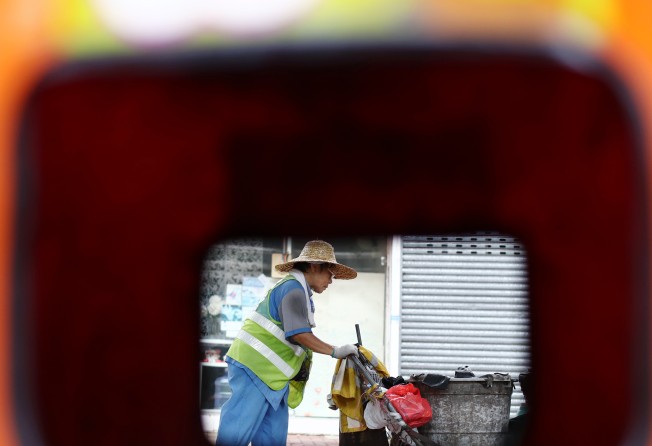Solid minimum wage policy will benefit Hong Kong’s lower paid
Hong Kong enjoys a gross domestic product per capita of US$37,927, which is much higher than neighbours such as Taiwan and South Korea

It is reported that Hong Kong’s hourly minimum wage is expected to increase from HK$34.50 to HK$37.50 with effect from May 1 next year. About 150,000 people, mostly security guards and cleaners, make the minimum wage based on official figures.
The HK$3 rise in minimum wage is the largest so far since its establishment in 2011. Annualised, this equals about 4.2 per cent, still lower than the 4.55 per cent general pay adjustment released by the government for middle and lower salary bands.
Hong Kong enjoys a gross domestic product per capita of US$37,927, which is much higher than neighbours such as Taiwan (US$24,402) and South Korea (US$26,152). But the minimum hourly wages of Hong Kong, Taiwan and South Korea – in Hong Kong dollars – are HK$37.50, HK$38 and HK$58, respectively.
Also, the cost of living in these places – especially housing – is more affordable than Hong Kong. There must be something wrong because our system needs to be rectified. Low-income workers toil hard and their salaries have yet to match the city’s economic performance.
Let’s use the latte index as a measure of how Hong Kong is still behind a number of countries with similar GDP figures. Here, our minimum wages nets us only one latte, whereas Canadians and Australians can enjoy four lattes for their hour’s work.
Hong Kong has made gradual improvements but there is still room for a better quality of living and to catch up with the rate of inflation.
A recent Oxfam report highlights the income disparity in our city, noting that the ratio of the top 90 per cent to the bottom 10 per cent has increased from 34 times to 44 times in the past decade. It is this income disparity that is inducing much negative sentiment in the community.
It is understandable that increasing the minimum wage puts additional burdens on small- and medium-sized businesses amid a shortage of workers. However, if we continue failing to improve low-income levels, it may be difficult if not impossible to make Hong Kong a liveable place for all.
The government has raised welfare expenditure more than 70 per cent in the past four years – a pace that is impossible to maintain. More importantly, we need to ask whether this money is being spent on the neediest people? Investment is needed on better job opportunities to improve the life chances of society’s vulnerable. And, most people are likely to be happier earning their own living rather than taking government handouts.
The key performance indicator of the success of our social welfare services is not only how much we have spent or the level of increase, we need to examine the effectiveness of that expenditure to see what differences or added value they have brought.
Sometimes, we are obsessed with the output rather the outcome of our poverty mitigation measures. We should promote independence rather than create dependence in the community. We should strive for better employment conditions for workers who cannot protect themselves. At present many employees work overtime and/or take another job to make ends meet. The hidden cost of the loss of well-being in the community because of these long working hours has never been properly accounted for or acknowledged. More should be done for low-skilled workers who need support and retraining. Outsourced workers in the low-income groups are always the most vulnerable.
We hope employers can demonstrate social corporate responsibility by providing decent employment conditions for all workers and for Hong Kong to implement a good minimum wage as the benefits are evident in many countries. With this, the standard of living of workers is increased, poverty and inequality are reduced, and morale is boosted.
Paul Yip is the chair professor of the Department of Social Work and Social Administration at the University of Hong Kong